BEST VIP CLUB!

BEST VIP CLUB!
200% Bonus
Guides
06:03, 14.03.2025

Religion in Civilization 7 has undergone a complete overhaul, simplifying the mechanics while maintaining its importance in gameplay. Unlike previous installments where religious victory was a separate condition for winning, Civ 7 integrates religion into overall strategies, making it a significant tool for gaining advantages in various paths to victory.
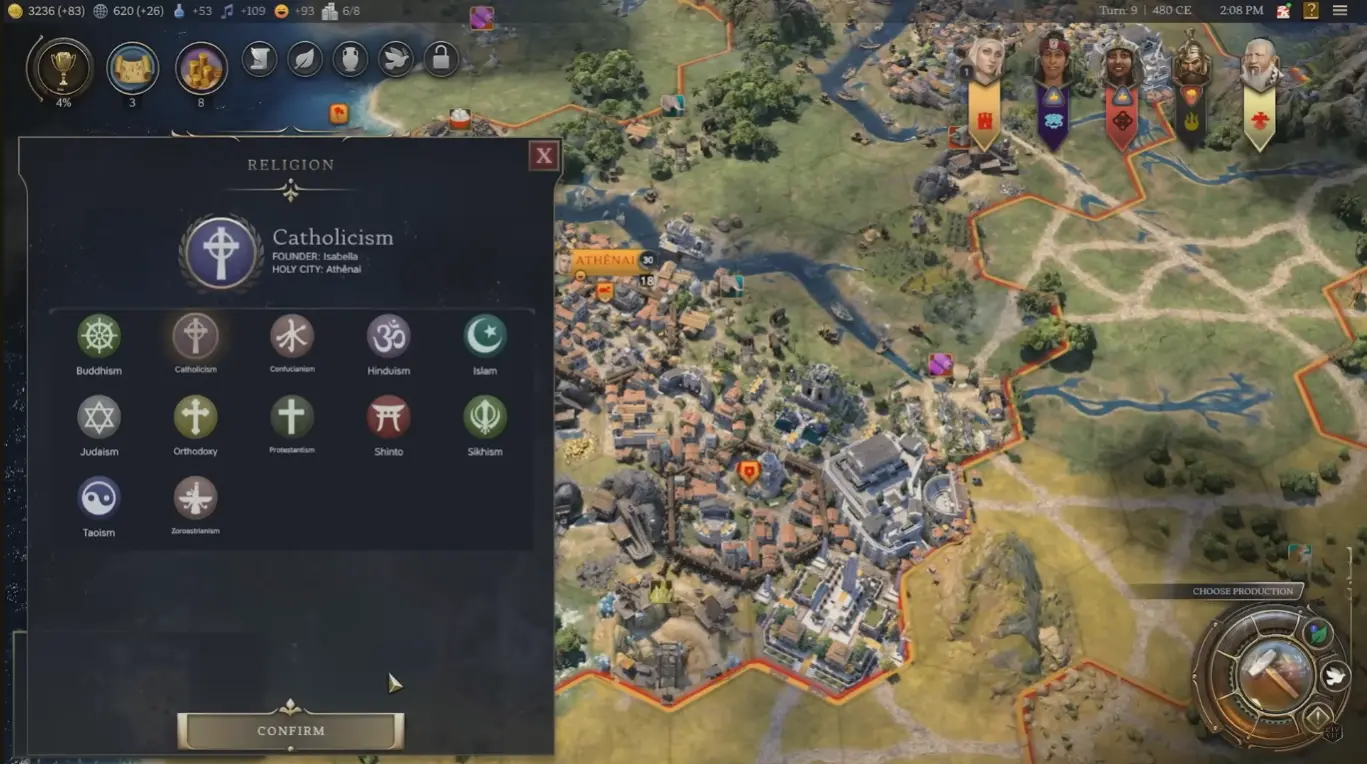
Religion first appears in the Ancient Era when your civilization discovers the Mysticism civic. After this, you have the opportunity to establish a pantheon, which provides passive bonuses for your empire.
These bonuses are diverse: they can enhance city growth, accelerate production, increase tile yields, or provide additional benefits related to specific terrain or buildings.
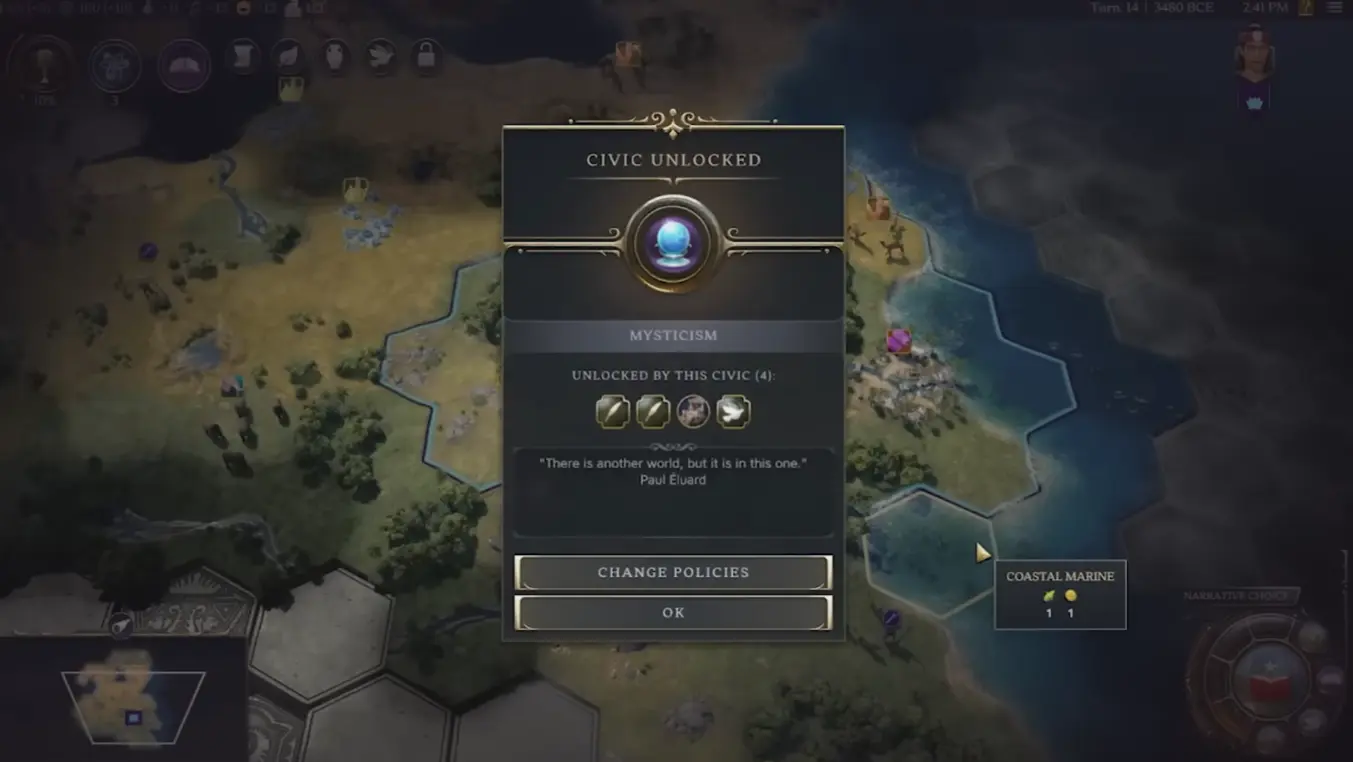
Each pantheon requires the construction of altars, which become available with the discovery of Mysticism. Altars are buildings that increase happiness levels, and they gain additional happiness if located next to World Wonders. They can be built in cities and towns, but some pantheon bonuses only apply in cities. To maximize benefits, it's essential to carefully read the description of each pantheon.
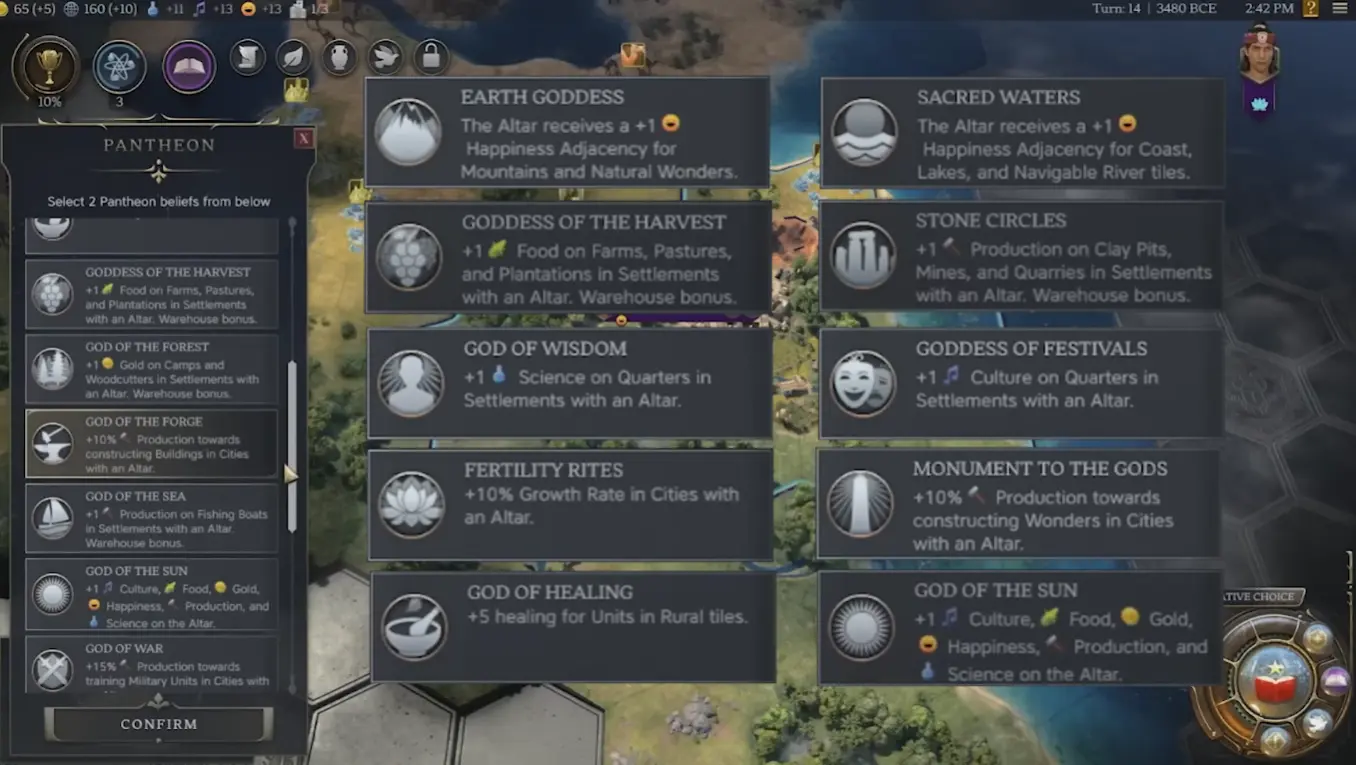
Choosing a civilization, such as Moria India, provides a unique religious advantage, allowing the selection of two pantheons instead of one. This offers greater flexibility in the early game and grants stronger bonuses before transitioning to the next phase of religious development.
Forge God | +10% to building production in cities with an altar |
Monument to the Gods | +10% to World Wonder production in cities with an altar |
Fertility Rites | +10% to population growth in cities with an altar |
Goddess of the City | +3 to Influence on an altar |
Sun God | +1 to culture, food, gold, happiness, production, and science on an altar |
When a civilization transitions from the Ancient Era to the Research Era, the pantheon disappears, and religion takes full form. Discovering the Piety civic allows the construction of temples, which are the primary religious structures.
Like altars, temples increase happiness levels and gain additional bonuses when located near World Wonders. At the same time, they have additional advantages if placed near natural wonders and mountains.
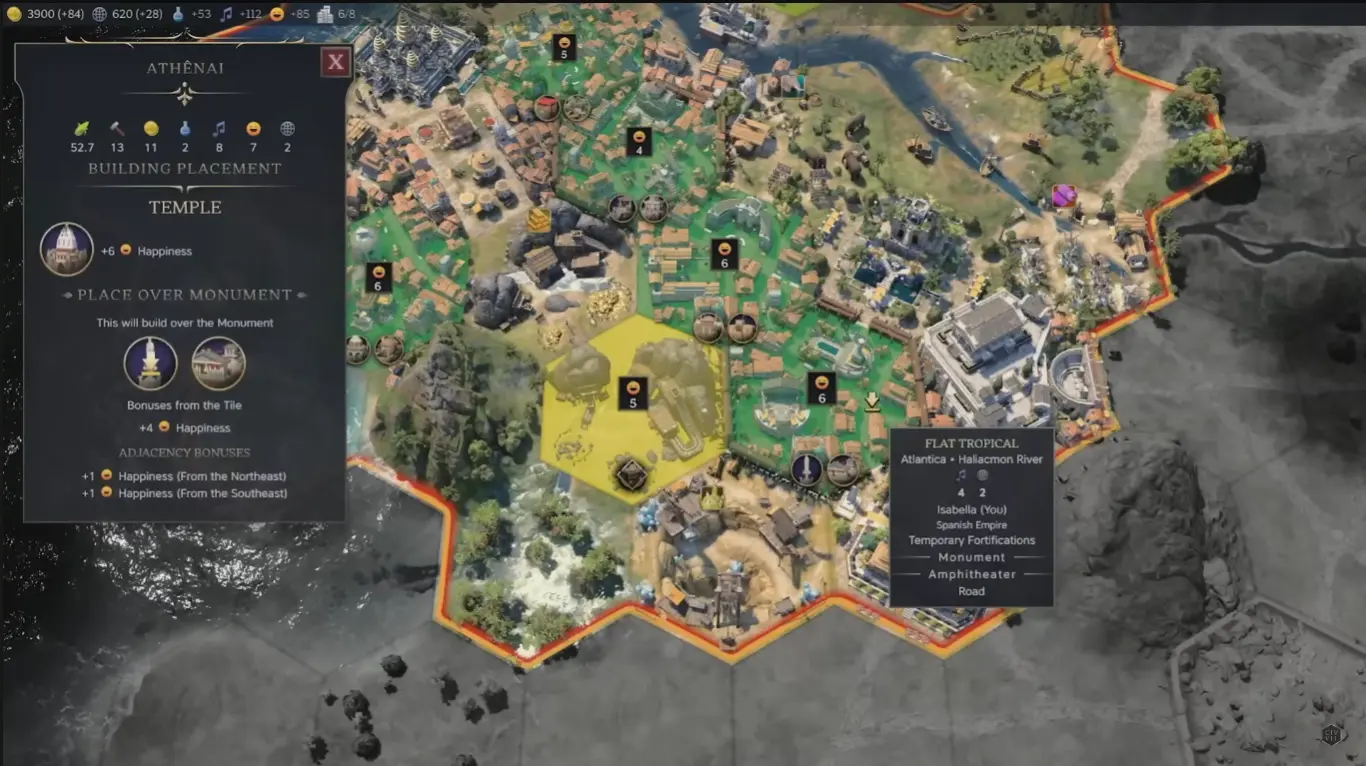
Temples contain one relic slot and open up the possibility of hiring missionaries, who are key to spreading religion. Building a temple in a city or town officially establishes your religion and designates the Holy City, which cannot be converted by other religions.
Unlike previous games where the capital automatically became the Holy City, in Civ 7, this role is given to the first city where a temple is built. This means you can strategically choose the Holy City's location, ensuring its safety and long-term influence.
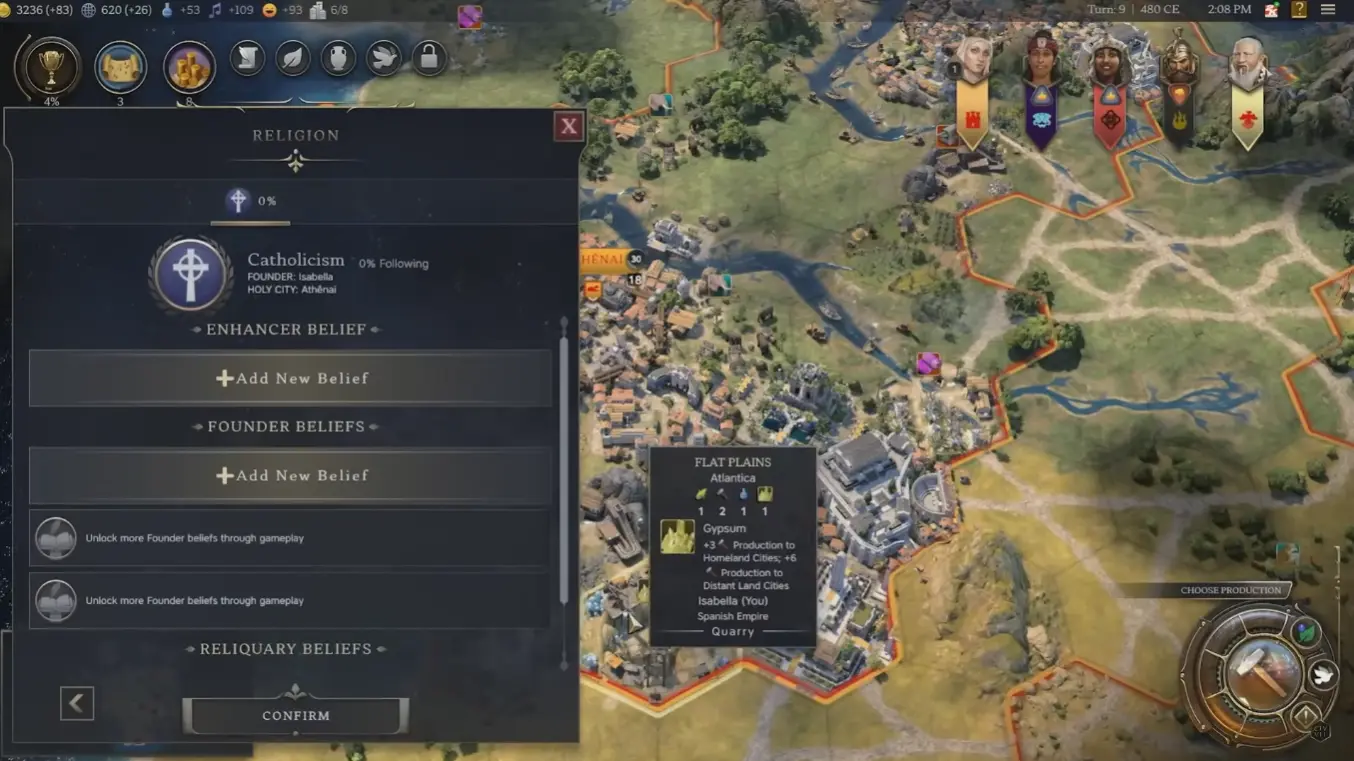

Every civilization in Civilization 7 can establish its own religion, ensuring that all players can engage in religious gameplay. Currently, only real-world religions are represented in the game, but developers have confirmed that a system for creating unique religions is in development. This will allow players to create unique beliefs with special bonuses.
The process of establishing a religion involves choosing a religion name, followed by two important decisions:
Initially, each religion receives one founding belief, but additional beliefs can be unlocked throughout the game.
Missionaries play a key role in converting settlements and expanding religious influence. Each missionary has four charges for spreading religion. Additionally, upon first converting a settlement, you receive 25 gold as a bonus.

To fully convert a settlement, both urban and rural populations must be converted. If a settlement does not yet have a religion, conversion is easier, requiring only one missionary charge. However, if the settlement already adheres to another religion, conversion becomes more difficult.
The player who first brings religion to a settlement gains a significant advantage, so it is important to invest in missionaries early in the Research Era. Delaying can make spreading faith more challenging as other civilizations may occupy the religious space first.
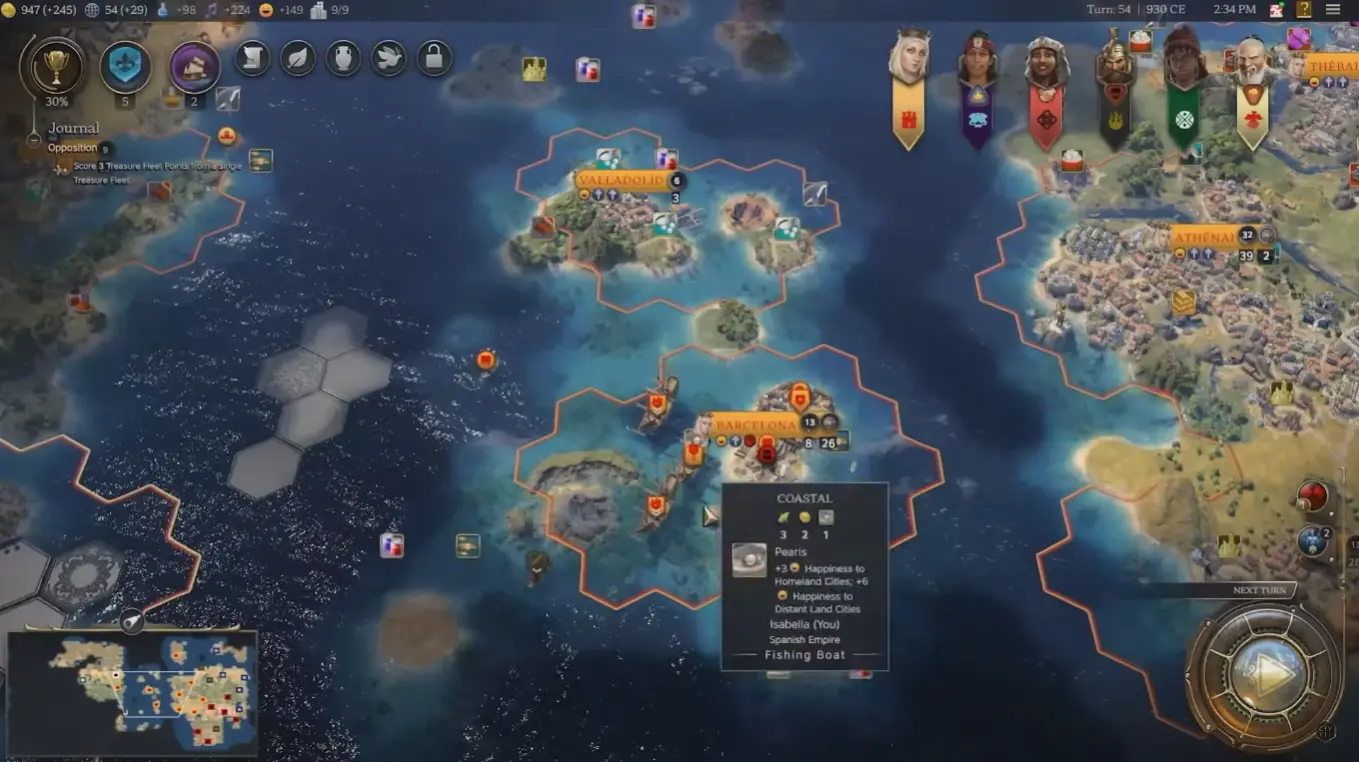
To convert a city to your religion:
If another religion already dominates the city, several conversion actions will be required. Successful city conversion grants Legacy Points and contributes to Cultural Victory through relic acquisition.
Relics are an important part of Cultural Heritage, and to win, you need to collect 12 relics. The main ways to obtain relics include:
They act as a special type of great works, providing +2 culture and +2 happiness when stored in temples.

To increase the number of relic slots, you can choose the "Religious Center" focus, which provides an additional relic slot and +2 happiness for a temple in that town. The main ways to obtain relics include:
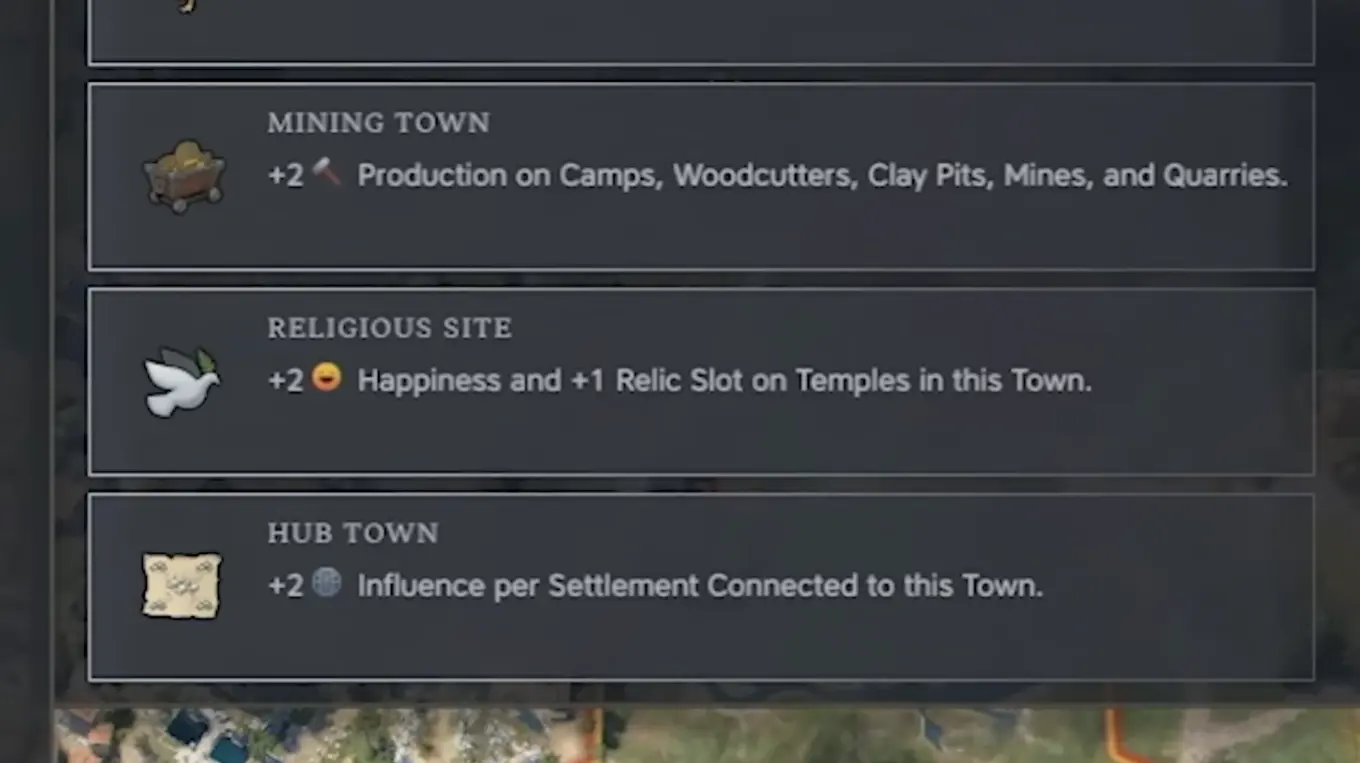

While religion remains important in the Modern Era, its role significantly changes. It is no longer an active part of gameplay but primarily provides passive bonuses. The main influence of religion is retained through the legacy points acquired in the previous era.
Successful religious expansion in the Research Era ensures that a civilization will receive ongoing bonuses through founding and enhancement beliefs, as well as bonuses from pantheons.
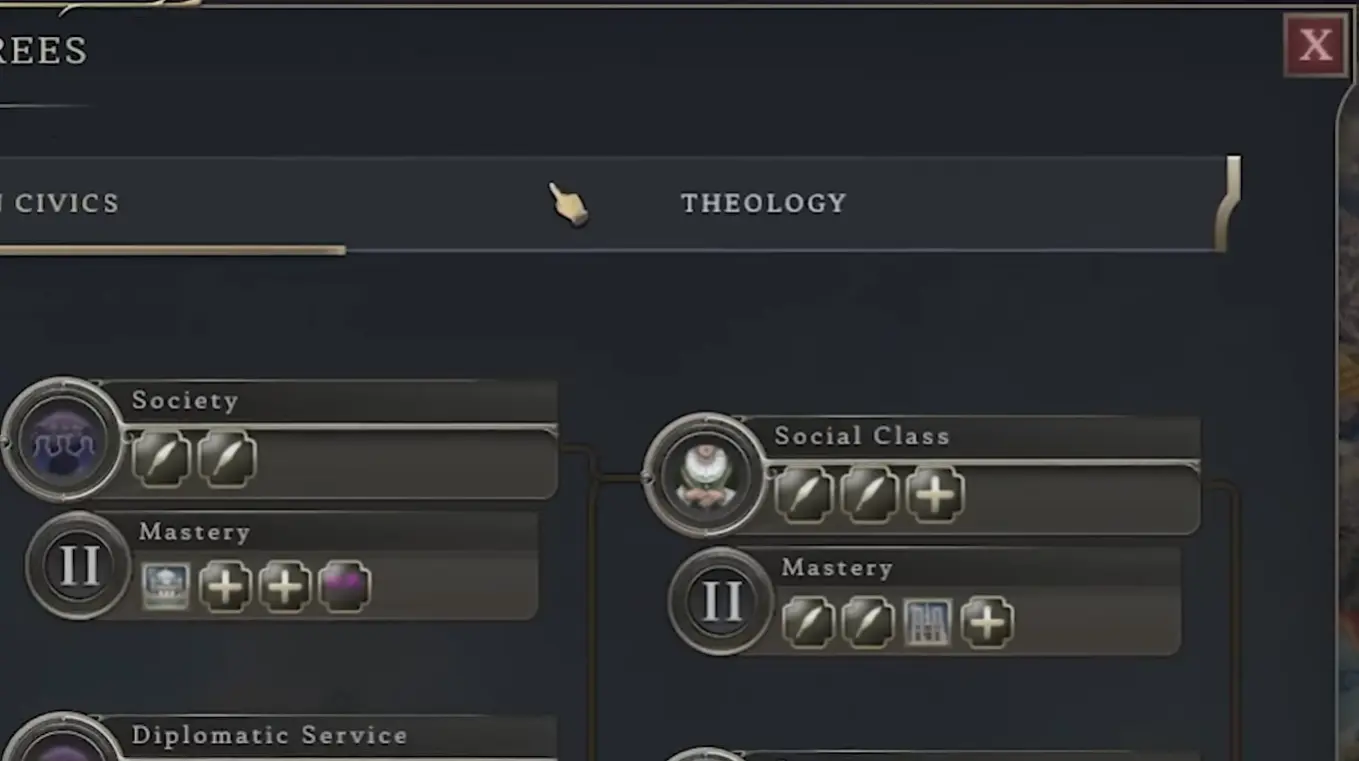
Comments